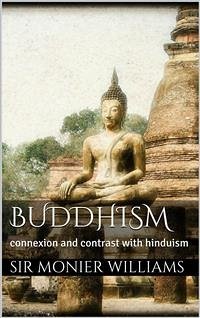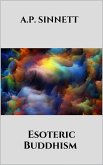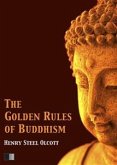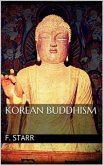The first idea implied by Buddhism is intellectual enlightenment. But Buddhism has its own theory of enlightenment—its own idea of true knowledge, which it calls Bodhi, not Veda. By true knowledge it means knowledge acquired by man through his own intellectual faculties and through his own inner consciousness, instincts, and intuitions, unaided by any external or supernatural revelation of any kind.But it is important to observe that Buddhism, in the carrying out of its own theory of entire self-dependence in the search after truth, was compelled to be somewhat inconsistent with itself. It enjoined self-conquest, self-restraint, self-concentration, and separation from the world for the attainment of true knowledge and for the accomplishment of its own summum bonum—the bliss of Nirvāṇa—the bliss of deliverance from the fires of passion and the flames of concupiscence. Yet it encouraged association and combination for mutual help. It established a universal brotherhood of celibate monks, open to persons of all castes and ranks, to rich and poor, learned and unlearned alike—a community of men which might, in theory, be co-extensive with the whole world—all bound together by the common aim of self-conquest, all animated by the wish to aid each other in the battle with carnal desires, all penetrated by a desire to follow the example of the Buddha, and be guided by the doctrine or law which he promulgated.
Bitte wählen Sie Ihr Anliegen aus.
Rechnungen
Retourenschein anfordern
Bestellstatus
Storno









